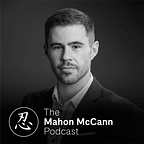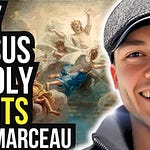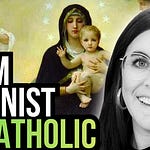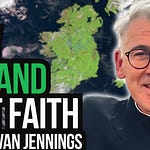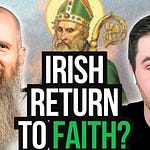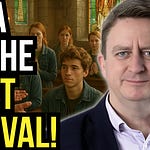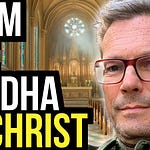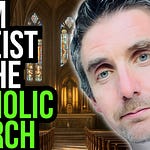The Meaning Crisis.
Much better thinker’s than I have given an account of the current crisis of meaning in the West. Peterson does a fabulous job in Map’s of Meaning, John Vervaeke blows the whole thing open in this Awakening From The Meaning Crisis lecture series, and Alastair McIntrye gets into the normative issues in After Virtue.
We will discuss all of these in this essay, but in Awakening from the meaning crisis, John describes the crisis like this:
“We are in the midst of a mental health crisis. There are increases in anxiety disorders, depression, despair, suicide rates are going up in North America, parts of Europe, other parts of the world. And that mental health crisis is itself due to and engaged with crises in the environment and the political system. And those in turn are immeshed within a deeper cultural historical crisis. I call the meaning crisis. So the meaning crisis expresses itself, and many people are giving voice to this in many different ways, is this increasing sense of bullshit. Bullshit is on the increase. It’s more and more pervasive throughout our lives and there’s this sense of drowning in this whole ocean of bullshit. And we have to understand why is this the case and what can we do about it? So today there is an increase of people feeling very disconnected from themselves, from each other, from the world, from a viable and foreseeable future...”
The symptoms of the meaning crisis are evident, increasing mental health problems, Nihilism, addiction, loneliness, and lack of purpose and coherence in life, individually and culturally. However, the etymology of this crisis is more complicated.
The modern crisis certainly begins in large part because of the conflict between the Scientific & Religious worldviews; Immortalised in Nietzsche's proclamation about the death of God:
“God is dead. God remains dead. And we have killed him. How shall we comfort ourselves, the murderers of all murderers? What was holiest and mightiest of all that the world has yet owned has bled to death under our knives: who will wipe this blood off us? What water is there for us to clean ourselves? What festivals of atonement, what sacred games shall we have to invent? Is not the greatness of this deed too great for us? Must we ourselves not become gods simply to appear worthy of it?”
The scientific and experimental enterprise discovered things for which the Christian worldview had no philosophical or spiritual answers and so the religious worldview in general became unreasonable. The loss of a religious worldview cost us a comprehensive narrative that made sense of our lives, a normativity which we could use to evaluate our goals and behaviour and a sense of connection and purpose to the world/universe/god at large.
In Zombies in Western Culture, John Vervaeke argues that the meaning crisis in Western culture has been accompanied by the loss of three “orders”; the nomological, narrative & the normative orders.
Nomological: in the Aristotelian/Christian worldview there was a deep connection between objective reality and subjective experience. Galileo’s discovery of the heliocentric universe made mankind no longer the centre of the cosmos, then Newton made us contingent in a deterministic clockwork universe of billiard ball causality. Eventually, Stephen Hawking summed this view up well when he said we are, "just a chemical scum on a moderate-sized planet, orbiting around a very average star in the outer suburb of one among a hundred billion galaxies.” Not the most meaningful of perspectives.
Narrative: The Christian metanarrative teleology, the Narrative Order, “provided an overarching story into which the minutia of the cosmos― individuals and their own stories―could fit and belong. Further, it introduced the idea that the agency of persons could intervene in the cycle of repetition and meaningfully impact the course of cosmic History.”
Normative: Without a narrative order that specified a teleology for human beings, we no longer had a hierarchy of values from which to evaluate if we were doing good or bad. In After Virtue, McIntyre argues that the failure of a rational grounding for values in the Enlightenment is because of the lack of a teleological account of human functioning. He gives a simple analogy to describe this problem: If I have a watch, I know it is a good watch if the watch tells the time because that is the function of a watch. Therefore if the watch doesn’t carry out this function and tell time then we can judge that it is a bad watch. Science can’t specify a transcendent human purpose as this doesn’t gel with the cold dead universe hypothesis, and for most naturalists like Richard Dawkins, we are made by a blind-watchmaker. Evolution gave us the drives of survival and reproduction but no uniquely human purpose beyond that and hence every meaning for human life has to be welded on (or projected) after the fact in an existentialist ‘project’.
As Veraveake writes:
“These three orders, the Nomological Order, the Narrative Order, and the Normative Order, became tightly integrated and mutually supporting. The story of God’s love (narrative order) inspired the rational-mystical ascension to God (normative order) through the deep connection between the rational mind and the structure of the cosmos (nomological order). The world was inherently meaningful, beautiful, rational, valuable, and spiritual. We were all tightly connected to this cosmos, and we had a coherent place and purpose within it.”
No more! The scientific worldview broke apart the Christian system and scattered the three orders to the wind. Peterson argued this split between objective reality, things, matter, and subjective reality, values, meanings, emotions, caused an internal divorce for modern individual's psychological integrity:
“The great forces of empiricism and rationality and the great technique of the experiment have killed the myth, and it cannot be resurrected - or so it seems. We still act out the precepts of our forbearers, nonetheless, we can no longer justify our actions” (Peterson, 1999, Pg 7).
In other words, we are largely still operating on a Judeo/Christian moral framework but without the Christian metaphysics that justified that normative framework's existence. As Nietzsche argued:
“When one gives up the Christian faith, one pulls the right to Christian morality out from under one’s feet. This morality is by no means self-evident… Christianity is a system, a whole view of things thought out together. By breaking one main concept out of it, the faith in God, one breaks the whole.”
This sets up an internal conflict for modern individuals - we believe certain things are good and others are bad but have no way of rationally justifying why this is the case? We act out our values, but no longer understand why we do what we do? As Peterson says,
“We carry on as if our experience has meaning - as if our activities have transcendent value - but we are unable to justify this belief intellectually.” (Peterson, Maps of Meaning 1999)
As we saw in article one, we need an implicit value system to be a cognitive agent and to pay attention, and our attentional choices of value constitute moral decisions. Yet we have no rational or scientific way of justifying these decisions, or ultimately pointing out ‘what should be’, what is of the most significance?
Because of this schism between morals, values and objective values, morality became cut loose from reality and thus people started to doubt the existence of ‘morality’ in general, believing it subjective, which in the scientific worldview meant fictional. As individuals, we can’t live without meaning and the culture is composed of individuals so, this is where we must start - healing the schism within ourselves, and returning what was lost but never forgotten.
Mapping The Problem Space.
As we spoke about in article two, what we see happening in the West to address the Meaning Crisis is people taking the back road into wisdom or spiritual traditions (which explains the rise in Stoicism & Buddhism). These Virtue ethics have versions of the three orders built into them (often in a less obvious and dogmatic way than religion), and this explains why virtue ethic’s all have the following characteristics:
“A conception of the ‘highest human good’
“A conception of moral virtues as cultivated states of character, manifested by exemplary persons”
“A conception of the practical path of moral self-cultivation”
“A conception of what human beings are generally like“
The persuasive power of this framework lies in the fact they can answer a lot of the questions that the scientific worldview cannot. However, the downside is so can many predatory ideologies, phoney religions and the cult-making factory of Social Media. So not all value systems are equal, some have terrible outcomes like the Nazis, and others have more positive outcomes like Stoicism and Buddhism, or at least don’t result in genocide.
This is what Nietzsche was talking about in the death of God - because of the lack of a coherent worldview, an absolute moral order, we would settle for ideological substitutes. These values systems would be more rational but ultimately poorly formulated and hence pathological, which is what we saw in the death and destruction of the 20th century. We ended the last article with the puzzle of the cultural relativism of the virtue traditions’ ideal characters and how this left us with a fractured normativity, which is really a fracturing of ourselves. Mcintrye points to the lack of a coherent teleology for this fracturing, and he recommends returning to the Aristotelian framework. However, maybe there is another way.
Re-building The Narrative Order.
Brett Andersen, who I recently had on the podcast, has been undertaking just such a project and attempting to offer a scientific grounding for values in his ‘Intimations of a New Worldview’ Substack (to be clear this is my interpretation of Brett’s work and in no way necessarily reflective of his thoughts. I highly recommend reading his essay here).
In his essay, Brett makes 8 claims and backs them up with argumentation:
There is a general process involved in the ongoing creation and complexification of everything.
In biology, this process manifests as an increase in the scope of non-zero-sum games over the course of evolution.
The large brain size in human beings was socially and sexually selected based on our ability and propensity to participate in the process of discovering and facilitating non-zero-sum games (which is equivalent to the process of complexification).
John Vervaeke’s relevance realization is how this process of complexification manifests in cognitive development.
Ever since human beings evolved the ability to talk we have been telling stories about people who were best able to participate in this process. Over time, the general pattern underlying these stories was abstracted out and encoded into the hero mythologies found cross-culturally.
Our participation in this process is biologically and psychologically optimal.
Our participation in this process (which is equivalent to relevance realization) is equally our participation in the process of creation/complexification itself.
The pattern of behaviour that characterizes optimal participation in that process is best understood as a personality. That personality is in large part what our ancestors implicitly meant by “God”.
For this essay, we will be exploring 4-6 and particularly Brett’s thesis that the human telos is captured in Jordan Peterson’s Hero Meta-mythology, and that the Hero Meta-mythology describes narratively the process of relevance realisation, and that this is biologically and psychologically optimal for human beings (hence an end that we can aspire to).
The Hero Meta-Mythology.
Peterson argues there is a universal shared structure to myths across cultures (Contrary to Mcintrye’s point in After Virtue), which he calls the meta-mythology.
This universal mythology has been observed by numerous other thinkers like Carl Jung and Joesph Campbell and is general enough to be taught as ‘story structure’ in most courses on writing. Peterson argues this general pattern of myths and stories represents how individuals and cultures update their frame and adapt to novel circumstances while maintaining optimal motivational and emotional valence.
The meta-mythology suggests an ideal character, which Peterson describes as the hero. As he writes in Maps of Meaning:
"The hero is narrative representation of the individual eternally willing to take creative action, endlessly capable of originating new behavioural patterns, eternally specialized to render harmless or positively beneficial something previously threatening or unknown." Maps of Meaning, at 186.”
He goes on to expand,
“It is a declarative representation of the pattern of behaviour characteristic of the hero that eventually comes to approximate the story of the saviour. Behind every particular (that is, historical) adventurer, explorer, creator, revolutionary and peacemaker lurks the image of the “son of god,” who sets his impeccable character against tyranny and the unknown.”
The hero is a particular kind of character and these Myths represent successful modes of being in the world. Peterson argues we watched people live and over time abstracted the best patterns to emulate and these stories become aggregated into composite hero stories. So stories aren’t fiction, they describe narratively the patterns of action we should take to transform the unbearable present into the desired future - to go from an Is to an Ought.
The World of Myth.
This is how Peterson describes the world of Myth:
What is? The meaning of the current state of experience (Unbearable present state)
What should be? To what valuable end should we be moving (Idealised future) The goal, imaged ideal state, implies a theory about “the Good” AKA “A Vision of Perfection” to which the current state of affairs is compared.
3. How should we act therefore? (Way/action pattern). How do we transform the unbearable present state into the desired future state?
Peterson says we tell stories of the individuals who embody the ideal pattern of action (succeed in answering these questions) and then imitate them. As Peterson says, “First we imitate the pattern underlying admirable behaviours, then we encode that pattern into rituals, then into narratives, then into philosophical argumentation, then, finally, we gain an empirical/scientific understanding of it. In this way: “The image of the hero, step by step, becomes ever clearer, and ever more broadly applicable.” (Peterson, 1999 p. 149).
The information on “how to act” is shared with others of the same “tradition” & “beliefs” and encoded in Myths & Stories to emulate, but always fundamentally limited by the unknown - hence the requirement for the revivification of myths and heroes to deal with novel circumstances. Peterson describes four main kinds of myths as:
1) A stable pre-existing order (like the garden of Eden)
2) The emergence of some kind of disruptive novelty (a dragon, monster etc)
3) The dissolution of a stable state (fall into tyranny)
4) The process of regenerating stability (renewing the state).
A Meta-mythology like the Christian worldview tries to combine all these types of myths together to form a comprehensive guide to the unknown and challenges we might face. This is also why Jesus is a Prophet, Sage, Warrior, King, God etc because he combines all the virtues together into a composite character to overcome the issues of cultural relativism - worth noting that the word ‘Catholic’ means '‘including a wide variety of things; all-embracing.’
In Peterson’s view, the known (when we know the action pattern to transform the unbearable present into the desired future) protects us from the overwhelming nature of the unknown. This is why the destruction of our stories leads to the chaos which is felt as overwhelming and why people are willing to fight and die for seemingly arbitrary ideological positions. Too much of the unknown is experienced as overwhelming and emotionally is perceived as a threat/punishment.
The problem with the known is that it easily stagnates and becomes tyrannical, therefore we should not identify with either the known or the unknown but with the process by which we turn chaos into habitable order. As Jordan Peterson writes: “Identification with this process… ensures that emotion will stay optimally regulated – and action remain possible – no matter how the “environment” shifts, and no matter when” (1999, pp. 152-153). Peterson argues the hero occupies the border of order and chaos and this is where Brett argues realise relevance occurs and that this is psychologically and biologically optimal.
Cognitive Basis For The Hero Meta-Mythology.
If you remember in article one, we discussed relevance realisation briefly.
Relevance Realisation is ‘our ability to intelligently ignore the vast number of non-optimal solutions and zero in on the small subset of solutions that are optimal or nearly optimal (Andersen, Substack).
1. Both occur at the border of order and chaos.
Peterson frequently describes the hero, mastering the known world (where they can transform what is into what should be), and then entering the unknown, to create more habitable order. This occurs at the border between order and chaos - too much chaos is overwhelming and too much order is stagnating. Peterson points out this is where we experience ‘Meaning’ and this maps nicely onto Vervaeke’s point about ‘flow states’ occurring at the edge of our competence but within a domain, we already have some skill in, like martial arts. The flow state is certainly psychologically and biologically optimal for human beings.
2. The Meta-mythology has the same basic process as an insight (key to RR).
This is super important: a Hero myth has the same basic structure as an insight, which is the key to relevance realisation.
Brett describes an insight as: letting go of a previous way that we were framing a problem (which has been rendered dysfunctional or non-optimal for whatever reason) and adopting a new, more functional frame that allows us to solve whatever problem we are engaged with more effectively. The process of an insight looks like this (taken from Brett’s Substack):
There is a relatively stable way that the person is framing the world.
For whatever reason (whether because of novel sensory input or their own internal dynamics), the person realizes that their current frame is dysfunctional or non-optimal.
The person breaks their current frame, causing an increase in behavioural entropy.
The person adopts a new, more functional frame (this is the ‘aha’ moment), causing a decrease in behavioural entropy such that there is even less entropy than before the insight.
3. The Meta-mythology is the process by which RR occurs.
Brett writes, “the process of exploration and update (i.e., the meta-mythology) is the process by which we determine the motivational relevance of novel stimuli. To put it simply, the meta-mythology is relevance realization, described in terms of a narrative and phenomenological structure rather than in terms of modern cognitive science.”
Why Does This Matter?
Myth describes the process by which the current frame has to be sacrificed, the forces of entropy and chaos faced voluntarily, and a new and better frame formed that actually lowers entropy, often not just for the character, but for the culture at large. This is the mythological motif of leaving facing the dragon, getting the gold and bringing it back to the village - the gold is new information; an insight.
What I am arguing here is that the hero meta-mythology suggests a universal ideal that’s grounded in the scientific worldview and gets us out of the problem of cultural relativism. Brett points out how the meta-mythology avoids the teleological issue because:
“There is no final “goal” towards which the universe is aiming. Rather, the process itself is the goal. This constitutes an infinite game rather than a finite game. (Andersen, Substack)”
So we don’t get stuck on any metaphysical stickiness. In other words, the hero meta-mythology is this process of updating one’s frame, realising relevance, is what is being described (accurately or inaccurately) in mythology and counts as a definition of the ‘successful mode of being’. There is a great deal of scientific evidence emerging that the border of order and chaos is psychologically and biologically optimal for human beings and essential to realising relevance, and that the process of updating one's frame is more important than any particular frame itself. The hero is the individual endlessly willing to break the frame and courageously pursue transformation, adaptation, and hence truth and reality through chaos and entropy.
Example of the Process: The Myth of Oedipus.
It’s all good and well describing this process in the abstract, but what does it actually look like in a myth? During a recent podcast, Brett and John discussed the hero meta-mythology, and John made a valuable critique of what about tragic heroes? How do they convey this process of realising relevance or not? Or do they break or frustrate the logic of the hero meta-mythology and thus change the story?
John used the example of the myth of Oedipus which for my Master’s thesis in Creative Writing, I adapted to a modern version, so am I deeply familiar with the characters, plot and underlying mechanisms of the story.
The story of Oedipus stretches back to some undefined point in pre-history, is first mentioned by Homer, but was largely formalised by Sophocles in the 5th century BC in his Three Theban Plays. The story is really about Thebes, which began before Oedipus was born and was often the mythological antagonist or shadow-side of Athens where Sophocles was from.
Thebes was a cursed place because of the mythological founder, Cadmus. Cadmus while searching for his sister Europa, who was kidnapped by Zeus, received a prophecy from the oracle of Delphi to follow a cow with a crescent moon on its flank and build a city where that cow fell dead. He quickly forgot about his sister and Zeus and because of cowardice or loyalty to the prophecy, started following the cow. Eventually, the cow died, and Cadmus sent men to a well to get water for the sacrifice, but these men were attacked by a Serpent of Ares. Cadmus went and fought the serpent and killed it, as good cultural heroes were supposed to do. However, Ares was obviously not happy about this, so Cadmus had to become his servant for 8 years. Cadmus was instructed by Athena to sow the teeth of the dead dragon into the ground and hence create a fierce race of fighters called the Spartoi, he had them fight each other and the remaining five helped him build the city of Thebes. Cadmus whole life was haunted by the killing of the serpent, and one day he remarked if the Gods were “so enamoured of the life of a serpent, he might as well wish that life for himself” and was turned into a snake himself.
So, Oedipus was in trouble from the start. His own Father King Laius tried to have him killed as a baby. King Laius was warned by the Oracle of Delphi (the same one that warned Cadmus) that his son would slay him and so he tried to kill Oedipus before that happened. However the messenger could not kill Oedipus and so he left him to die and a farmer found him instead. Oedipus was adopted by the childless King Polybus and Merope in Corinth and grew up not knowing about his parentage. Towards his late teens, there were some rumours and so in early manhood, Oedipus visited the Oracle of Delphi to figure out his future and received a prophecy that he was fated to kill his father and marry his mother, so he resolved never to return to Corinth (Pretty reasonable fate to want to avoid). But the lesson here is you can’t change fate by running from it (much like his father).
Ironically, on the road to Thebes, Oedipus, filled with rage himself, met a cantankerous old man and killed him - who turned out to be King Laius, his father. In the meantime the throne of Thebes was occupied by Creon, a Steward, and the brother of the Queen of Thebes, Jocasta, Oedipus’s mother. After the death of the king, a Sphinx started wandering the land and munching on people if they couldn’t answer its riddles. Creon offered the position of the King and the hand of the Queen to whoever could answer the Spinx’s riddle and so plucky Oedipus took on the task. The riddle was:
"What walks on four feet in the morning, two in the afternoon and three at night?". Oedipus being a big clever clogs answered the riddle: "Man: as an infant, he crawls on all fours; as an adult, he walks on two legs and; in old age, he uses a walking stick".
For his heroism and for saving Thebes, Oedipus got to marry his own mother and becomes king. Oedipus unknowingly fulfilled the prophecy of the oracle by trying to avoid it, just like his father did. The whole story of Oedipus is about Hubris, Anger and willful Blindness, which could be summed up by not engaging in the process of ‘Criticality’ that Brett discusses, as is the case in most psychopathologies - not paying attention to one’s errors. The warning here of course is that true wisdom is not just answering riddles. Jung made much of the Sphinx metaphor as an intellectual sleight of hand in the face of real growth and development - something like if I can answer the question of what being a man is, then that makes me a man.
Once Oedipus is king, things go from bad to worse. A curse is brought on Thebes and the crop fails, drought kicks in and social order goes to hell. Oedipus sends Creon to the Oracle of Delphi to find out what happened and how to fix it? The oracle tells him to find the murderer of Laius to sort everything out and more dramatic irony as Oedipus starts to investigate himself.
During this investigation, he consults a blind wise man, Tiresias. Tiresias himself is a very interesting mythological character, and different stories abound about how he became blind and a seer. The main story is that he snuck up and saw the Goddess Athena bathing when he shouldn’t have and went blind as a result. However in Ovid’s Metamorphosis, he saw two snakes copulating on a mountain and stopped them and thus Zeus turned him into a woman for seven years and he had a family. But then figured out if he walked the same mountain range that he did before and left the snakes alone, he would be changed back! (which he was) However, when Hera and Zeus disagreed about which of the sexes experienced more pleasure during sex (Hera argued that the answer was men, by far) so they consulted Tiresias, who had been both. Tiresias asserted that women had greater pleasure than men, and Hera struck him blind! Zeus, in thanks for his support, gave him the gifts of prophecy and longevity.
The blind sage is a familiar motif in Myth, one who cannot see but has true insight. Ironically Oedipus, who is willfully blind, consults the actual blind man, who tells him ‘you are the problem’ but Oedipus doesn’t see it yet and so blames everyone else. The story goes on as Oedipus investigates himself. Jocasta, his wife and mother, urges him to stop, but he keeps going and going. This could be considered a virtue of Oedipus, that he really genuinely pursues the truth, even to his own demise and this is why he is a tragic character because he is not totally to blame for his ill fortune.
When the whole sordid tale unravels and Oedipus learns the truth - Jocasta takes her own life and Oedipus pokes out his eyeballs with her brooch, becoming ironically, actually blind like he had been willfully blind in the story. This isn’t a happy ending but is actually a moral improvement for Oedipus. In the third Theban play by Sophocles, Oedipus at Colonus - after wandering in the desert for a time, Oedipus actually becomes a holy figure. He says, "I come as someone sacred, someone filled with piety and power, bearing a great gift for all your people." He is polluted but through his quest for the truth and seeing his errors, he gained the vision of foresight and even makes several prophecies that come true, including his own death and the deaths of his sons in their civil war.
Theseus, mythological founder of Athens, sympathises with him and understands why he is holy. Oedipus praises Theseus and offers him the gift of his burial site, which will ensure victory in a future conflict with Thebes. Theseus protests, saying that the two cities are friendly, and Oedipus responds with what is perhaps the most famous speech in the play. "Oh Theseus, dear friend, only the gods can never age, the gods can never die. All else in the world almighty Time obliterates, crushes all to nothing...". Sure enough, Thebes and Athen’s then fight over where Oedipus will be buried and Oedipus considers the merits of both and eventually chooses Athen’s (which is probably propaganda by Sophocles). Finally, he dies in a flash of lightning from Zeus and disappears, and only the great mythological hero Theseus knows where he is buried at Colonus near Athens which ensures victory in the war with Thebes.
Even without the additional hero story of Oedipus at Colonus, the story of Oedipus Rex perfectly maps onto the meta-mythology and shows how dangerous the truth and the destruction of one's frame can really be. The theme is one of overcoming hubris, inter-generational curses, and is deeply Socratic in that knowledge of one's own ignorance is the beginning of wisdom.
Conclusion.
In overcoming the Meaning Crisis we need to incorporate value back into the Scientific Worldview (maybe this will make it a new worldview entirely). Jordan, John and Brett have laid the groundwork for this project. If we are talking about ‘who we should be', we are talking about values and each system of value will have a different version of that story, composed of the narrative, normative and nomological order. However, Peterson argues that the hero meta-mythology produces a universal ideal seen across all these cultures and traditions and a universal narrative, that provides an optimal mode of being for human beings, and that this maps onto work in Cognitive Science (Relevance Realisation) and Biology (Complexity). Finally, we can see how even in tragic Hero mythology stories, the same logic shines through, and in the next essay, we will learn more about the Nomological order, how do our minds connect to reality? Looking at Plato’s Cave and the connection between character, virtue and reality.

